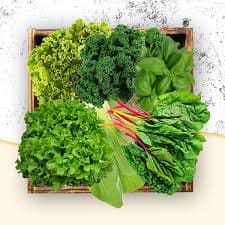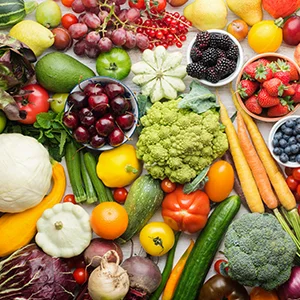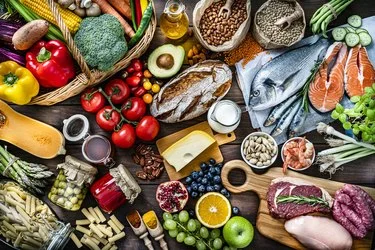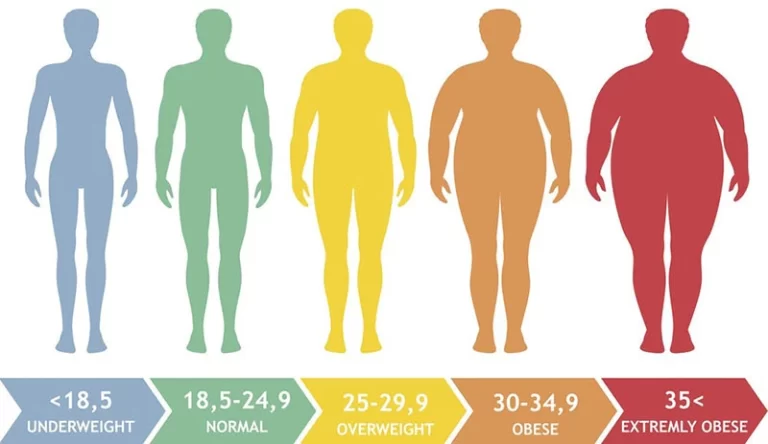Top 24 Foods to Grow Taller Naturally
Introduction
- Even though genetics plays a major role in determining your height, getting adequate nutrients from your diet is essential to ensuring good height growth.
- Once you reach your maximum height, there’s no way to get much taller, but there are foods that can help you maintain your new height by maintaining the strength and health of your bones, joints, and entire body.
- For example, the immune system, tissue healing, and appropriate development all depend on protein. In addition to these micronutrients, calcium, vitamin D, magnesium, and phosphorus all have an impact on bone health, which is crucial for growth.
- According to recent studies, probiotics—a type of beneficial bacteria commonly found in fermented foods—have also been connected to faster child growth. The top 13 meals for height gain will be discussed in this post.
- Continue reading to find out more about which foods promote height gain. The greatest method to maintain your health and support your body in realizing its full potential is to take good care of yourself, which includes eating healthily, exercising frequently, and getting plenty of sleep.
- No miracle drug will make you taller. In actuality, the main factor influencing your height is genetics.
Does eating cause one to grow taller?
- Genetics plays a major role in height. Certain meals do not cause someone to grow taller once they reach maturity and stop growing. However, a person can attain their maximum height with the support of a healthy diet during growth and development.
Can food make you taller?
A person’s bones lengthen when they grow and do so until the end of puberty. Growth plates referred to as epiphyses are seen in bones.
These growth plates fuse together near the conclusion of puberty, causing the person to stop growing.
Various factors can impact an individual’s height, such as:
Genetics:
A person’s height is mostly determined by their genes. A person’s height is largely determined by heredity, according to certain studies.
Sex:
Females usually cease growing by the time adolescence ends. Males usually attain their maximum height when they are 18.
Hormones:
A person’s growth may be impacted by the hormones that the body generates.
Which elements affect an individual’s height in this case.
- A person does not grow any taller after they reach maturity.
- But a person’s eventual height may depend on factors like healthy eating and general well-being during childhood and adolescence, while they are growing and developing.
Does The Child’s Height Also Get Affected?
- In addition to genetics, environmental variables can also impact height. These consist of sickness, sleep, exercise, and diet.
- A balanced diet is crucial for a child’s growth and development during their formative years. The most significant lifestyle factor influencing height is nutrition.
Foods To Grow Taller Naturally
Following are the foods that help us grow taller naturally
Beans

- Beans are high in nutrients and a great source of protein. Research has shown that protein increases the levels of insulin-like growth factor 1, an essential hormone that regulates a growing child’s height.
- Beans, which are also high in iron and B vitamins, can help prevent anemia, a condition characterized by a lack of healthy red blood cells. Not only is iron required for tissue growth, but iron deficiency anemia can also slow down a child’s growth. Among other components, beans are a good source of fiber, copper, magnesium, manganese, and zinc.
Chicken

- Due to its high protein content and other essential nutrients, chicken is a wonderful food for growing taller people. It has a particularly high concentration of vitamin B12, a water-soluble vitamin that is necessary for both height maintenance and growth.
- It also contains a lot of taurine, an amino acid that regulates the growth and production of bones.
- Furthermore, there are roughly 20 grams of protein in a 3-ounce (85-gram) serving of chicken. Niacin, selenium, phosphorus, and vitamin B6 are all abundant in chicken, yet the precise nutritional makeup can change significantly based on the cut and cooking method.
Almonds

- Almonds include a wealth of vitamins and minerals that are necessary for growing taller. They are also high in fiber, magnesium, manganese, and healthy fats. Vitamin E, an antioxidant and fat-soluble vitamin, is also abundant in almonds.
- One of the most serious consequences of this critical vitamin deficiency in children is stunted growth.
- Almonds may also help to maintain bone health. In a tiny research with 14 participants, it was discovered that eating almonds inhibits the growth of osteoclasts, a type of cell that breaks down bone tissue.
Green leafy vegetables

- Leafy greens are fantastic for growing your height. Kale, spinach, rocket, and cabbage are a few examples. Although the exact concentration of minerals varies throughout species, leafy greens frequently contain a concentrated amount of vitamin C, calcium, iron, magnesium, and potassium.
- They also include a lot of vitamin K, which promotes growth and, consequently, increases bone density and height maintenance. In fact, a study including 103 women found that frequent consumption of greens significantly decreased the risk of falling bone mass.
Yogurt

- Protein is just one of the vital elements that yogurt has that are necessary to grow taller. In just seven ounces (200 grams), Greek yogurt contains about 20 grams of protein.
- Probiotics are a class of beneficial microorganisms that are included in some kinds and can help maintain gut health.
- Probiotics have been shown in several studies to support children’s growth, lower inflammation, and improve immunological function.
- Yogurt is also a fantastic source of potassium, phosphorus, magnesium, and calcium—all of which are necessary for bone metabolism.
Sweet Potatoes

- In addition to being versatile and colorful, sweet potatoes are also quite healthful and can even make you taller.
- They contain a lot of vitamin A, which is especially beneficial for maintaining or increasing height. They also include soluble and insoluble fiber, which can support the growth of beneficial bacteria in your intestines and improve the health of your digestive system.
- You may improve your body’s capacity to absorb nutrients and make sure you’re getting the vitamins and minerals needed for growth and development by keeping your gut flora in a healthy state.
- Significant levels of potassium, vitamin B6, manganese, and vitamin C are also present in sweet potatoes.
Quinoa

- One extremely nutrient-dense seed variety that’s often utilized in place of other grains to help you grow taller is quinoa.
- With all nine of the necessary amino acids your body requires, it is one of the few plant-based foods that is regarded as a complete protein.
- Another vital vitamin that is present in high concentrations in quinoa is magnesium. It contributes to the growth of bone mineral density and is a crucial component of bone tissue. Each serving of quinoa also contains a significant amount of manganese, folate, and phosphorus—all minerals that are critical for strong bones.
Eggs

- Eggs are a fantastic food to help teenagers grow taller since they are a real nutritional powerhouse. With six grams of protein in a single big egg, they are exceptionally high in protein.
- They are also packed with other nutrients, such as vitamin D, which aids in calcium absorption and maintains strong bones.
- A study found that giving vitamin D tablets to children who had low amounts of the vitamin accelerated their growth over the course of six months. Additionally, an 874-child study revealed that children who ate eggs frequently grew taller each month.
Berries

- Because berries are high in vitamin C, which promotes tissue growth and healing, they are considered the finest meal for growing taller.
- Vitamin C also increases the production of collagen, the most common protein in your body. Studies have demonstrated that collagen promotes bone health and density, which may help with height gain or maintenance.
- Berries also include a range of other vitamins and minerals, such as manganese, fiber, and vitamin K.
Salmon

- Salmon is a fatty fish that has high levels of omega-3 fatty acids.. Growth and development require omega-3 fatty acids, a heart-healthy lipid.
- According to some research, omega-3 fatty acids may promote bone turnover for ideal growth and may have a role in bone health.
- Moreover, children with low levels of omega-3 fatty acids could have more problems sleeping, which could be harmful to their development. Significant amounts of protein, potassium, selenium, and B vitamins are also present in salmon.
Milk

- Many people believe that milk is a necessary component of a healthy, well-balanced diet.
- By providing several minerals, such as calcium, phosphorus, and magnesium, which are essential for bone health, it can help promote growth. Furthermore, research has indicated that cow’s milk may enhance weight gain and muscle building in children.
- But milk shouldn’t be consumed if there is an allergy or intolerance.
Whole Grains

- Whole grains are high in B vitamins, magnesium, calcium, zinc, selenium, and iron, and they also have low calcium content.
- B vitamins in particular support the formation of bones and cells.
- Zinc and iron are necessary for our bodies to produce the optimal bone matrix, or structure, for bone strength.
- Studies show that magnesium may improve bone density and that low levels of the mineral may affect how well your body absorbs calcium.
Fruits

- Fruits are an excellent source of fiber, vitamins, and minerals that are necessary for normal development and growth.
- Fruits high in vitamin C include papayas, oranges, lemons, grapefruits, and pineapples. Collagen is the precursor to bone mineralization and is synthesized with the help of vitamin C.
The Greatest Foods for Increasing Height
A diet rich in nutrients and geared towards height gain is necessary for optimal growth and development. Now let’s look at some of the finest foods to increase height:
Dairy Delights
- Dairy products include calcium, protein, and vital vitamins that aid in the development and maintenance of strong bones.
- Including dairy items in your child’s diet, such as cheese, yogurt, and milk, will help strengthen their bones and promote height increase.
Powerhouses Packed with Protein
- Without protein, which is an essential component, the ideal diet for height growth cannot be considered complete.
- Protein is needed by body tissues for growth, upkeep, and repair. Lean meats, fish, and eggs are excellent sources of high-quality protein that helps with tissue repair, muscular growth, and height gain.
Plant-Based Energy
- Legumes, which include lentils and beans, are rich in protein and include important elements like zinc and magnesium that aid in the growth of bones.
- Nuts that promote height growth, such as almonds, have vitamins and healthy fats.
High-Nutrient Vegetables
- Dark green leafy vegetables, such as broccoli, spinach, and kale, are rich in vitamins, minerals, and antioxidants that improve bone health, strengthen the immune system, and promote general growth.
Complete Grains To Increase Stature
- Whole grains are high in fiber, complex carbs, and vital nutrients that promote healthy growth and development.
- Examples of these foods are brown rice, oats, and whole wheat. They support healthy digestion and long-term energy production, which promotes general growth.
Orange Feelings
- Vitamin C, which is plentiful in citrus fruits, is essential for the synthesis of collagen, a protein required for the formation and repair of bones.
- By adding oranges, lemons, and grapefruits to their diet, you can strengthen their immune system and promote their growth in height.
Super Seeds
- Seeds like chia, flax, and sesame are rich in omega-3 fatty acids, protein, and fiber—all of which promote healthy growth and development.
- Add these extraordinary seeds to your child’s diet to promote improved health in general.
Go Green
- Avocados are a fantastic source of vitamin E, which promotes bone formation, and healthy fats.
- Conversely, peas provide an abundance of essential minerals and protein that support the growth of total height. Include it in your child’s diet to encourage growth as their height rises.
Delightful Achievement
- Fruits rich in vitamins, minerals, and antioxidants that assist growth and general health include melons, kiwis, and berries.
- By giving your kids these sugary sweets, you can strengthen their immune systems and help them grow taller.
The Quality Of Fish
- Salmon, tuna, and sardines are among the fatty fish that are great providers of omega-3 fatty acids and vitamin D.
- These nutrients have a major role in growing height and are essential for keeping strong bones.
Horlicks
- The Power Of Essential Nutrients For Growth
- Horlicks is a nutritional powerhouse that supports a child’s general growth and development, including an increase in height, because it is made with a combination of vital vitamins and minerals.
- Children can attain their maximum height potential with the help of Horlicks, since they provide essential nutrients like iron, improve bone health, and boost the immune system. All you have to do is mix it with some milk to see the miraculous effects it can have.
Nutrient Counts In Food
Eggs
Numerous nutrients that are essential for growth and development can be found in eggs.
| Egg | Contents |
| calcium | 24.1 milligrammes (mg) |
| protein | 6.24 grammes (g) |
| Vitamin D | 1.24 micrograms (mcg) |
| folate | 35.7 micrograms |
| Vitamin B12 | 0.513 micrograms |
- As per certain studies conducted: Children who are deficient in vitamin B12 and folate may experience stunted growth.
- A study examined the consequences of egg consumption in early childhood. For six months, children six to nine months old ate one egg every day.
- The group that consumed eggs had notable gains in linear development and a decrease in stunted growth when compared to the control group.
Dairy
- Calcium is necessary for skeletal development and bone growth.
The National Institutes of Health (NIH) states that the following calcium consumption recommendations are suggested daily for children and adolescents:
| Age | Calcium Intake |
| 0–6 months | 200 mg |
| 7-8 months | 260 milligrams |
| 4–8 years | 1,000 mg |
| 9–18 years | 1,300 mg |
A good source of calcium is dairy. Dairy products that contain calcium include the following:
| Milk product’s | calcium composition |
| Ricotta with partly skimmed | 4 ounces (oz)/335 mg |
| low-fat yogurt | 310 mg/6 ounces of plain |
| low-fat skim milk | 300 mg/8 ounces |
| Mozzarella with partial skim | 1 oz 210 mg |
| Cheddar cheese | 205 mg/1 ounce |
Non-dairy calcium sources
The calcium content of these non-dairy meals is as follows:
| content of food | Calcium |
| 1 cup of cooked collard greens | 266 mg |
| 1 cup cooked broccoli | 100 mg |
| 1 cup cooked kale | 179 mg |
| 1 cup Bok choi, cooked | 160 mg |
| An entire orange weighs | 55 milligrams. |
| Tofu | 85 g–100 g |
Good sources of calcium include products that have been fortified, including cereals.
Almonds
- For young people, vitamin E is crucial.
- A 2014 article claims that children who are deficient in vitamin E may experience stunted growth.
- Due to their smaller vitamin E stores and faster growth than adults, children are more likely to suffer from vitamin E deficiency.
Vitamin E content is high in almonds.
- According to the Office of Dietary Supplements, one ounce of dry-roasted almonds contains 6.8 mg of vitamin E, or 45% of the daily required amount.
- Almonds can be consumed raw, roasted, or made into almond butter.
Beans and Peas
Pulses, also known as beans and seeds, are a great source of nourishment. Among them are:
- kidney beans
- Cannellini beans
- pinto beans
- lentils
A person’s height can be significantly influenced by their food.
One excellent source of protein is legumes. They additionally offer:
- B complex vitamins
- iron
- copper
- magnesium
- zinc
- Phosphorus
Fish
- Fish offers calcium and vitamin D. Examples of this are salmon and tuna.
- Vitamin D benefits the body. Increased absorption of calcium promotes bone growth and development.
- According to the Centers for Disease Control and Prevention, vitamin D also aids in preventing rickets, a condition that causes bones to weaken.
| Fish | Vitamin D content, Calcium content |
| Canned salmon | 100 g 15 mcg,220 mg |
| Canned mackerel | 100 g,7.3 mcg,241 mg |
| Canned sardines in oil | 100 g |
Fruits
- A vital component of bone health is vitamin C. Collagen is produced with the help of vitamin C and is essential for strong bones and maintenance.
Vitamin C is abundant in several fruits, such as the following: Vitamin C is abundant in several fruits, such as the following:
| Fruit | Vitamin C content |
| Orange | 81.9 mg / 154 g |
| Orange juice | 83.3 mg/ 248 g |
| Grapefruit | 96.1 mg, 308 g |
| grapefruit juice | 94.2 mg,248 g |
| Kiwi | 56 mg,75 g |
| Strawberry | 88.2 mg,150g |
| Melon, cantaloupe | 57.3 mg,156 g |
- According to a study, berries are good for bone health. Their high nutritional content could be the cause of this. They do, in fact, contain vitamins and phytochemicals with anti-inflammatory and antioxidant properties.
- Additionally, berries may help avoid osteopenia, a disorder that results in brittle bones from a decrease in bone mass.
Recognizing The Science of Height Increase
Gaining height is a difficult process that depends on a number of variables, such as hormones, diet, and bone health. Let’s examine the science underlying height gain in more detail:
Growth Hormone Supplements And Diet
- Growth hormone synthesis and regulation are greatly influenced by nutrition. Adolescent height gain is facilitated by appropriate hormone secretion, which is ensured by a nutrient-rich, well-balanced diet.
Bone Health And Calcium
- Bone density and growth depend on calcium. It contributes to bone strength, reducing the risk of fractures. Eating foods high in calcium, such as leafy greens and dairy products, can promote bone health and aid in the growth of height.
Vital Minerals And Vitamins
- Minerals and vitamins including zinc, magnesium, vitamin K, and D are essential for the growth and function of bones. The use and absorption of other nutrients that support healthy growth are facilitated by these nutrients.
Age-Resistant Whole Grains
- Iron, B vitamins, and fiber are among the vital nutrients found in whole grains. These nutrients enhance digestion, encourage general growth, and maximize the absorption of additional nutrients that increase height.
How Much Time a Person Should Sleep To Encourage His Growth?
An article claims that a child’s growth and development can be impacted by lack of sleep.
Here are a few indicators that an individual is receiving enough sleep:
- After coming into bed, within 15 to 30 minutes, falling asleep effortlessly up at a regular time every morning
- being conscious and awake the entire day determines how much sleep a person requires. Depending on an individual’s age.
they recommend the following number of hours of sleep:
| Age | Hours of sleep |
| 4–12 months | 12–16 |
| 1–2 years | 11–14 |
| 3–5 years | 10–13 |
| 6–12 years | 9–12 |
Another crucial component of development and growth is exercise. Frequent exercise, such as jogging, climbing, and leaping, helps build stronger bones and muscles.
Kids between the ages of 6 and 17 should try to exercise for at least an hour each day.
Additional Strategies To Promote Development And Growth
- Include regular exercise in your child’s daily routine. The spine can be extended by engaging in exercises like swimming and spot jumping as well as yoga practices like the Surya Namaskar.
- Encourage your kids to do sports, such as basketball or volleyball. When engaging in these activities, continual running triggers the brain’s production of growth hormones, an advantageous response that encourages somatic growth. Playing outside in the early morning or late evening helps the body absorb sunlight, which is important for bone formation.
- Getting enough sleep is essential for stimulating growth and development. According to a study, increasing sleep duration at night promoted growth hormone release. Set a rigorous routine for your child’s waking and sleeping hours to encourage their physical development.
- Maintaining proper posture is very important. Your child’s height could be affected by slouching or drooping, which can potentially cause back and neck issues. It’s vital to observe how they’re sitting, standing, or sleeping as a result.
- Find out from your child’s doctor if they need any vitamins that aid in growth. Make sure you take them for checkups every three months to monitor their general health.
Conclusion
It takes more than just heredity to realize your child’s full growth potential. You can give them the vital nutrients they require to grow by including a diet rich in foods that increase height. From nutrient-dense whole grains to vitamin-rich fruits, each bite of these foods promotes height growth and helps them become a taller, more self-assured version of themselves. Accept the ability of nutrition to power your child’s body and inspire them to aim high.
FAQs
What Quickly Increases Height?
Genetics is the main factor that controls height, and there are no effective ways to fast and significantly enhance height. During the developmental years, factors including a nutritious diet, regular exercise, and enough sleep can promote healthy growth.
Does Height Depend on Diet?
After a person reaches their genetically set potential, a balanced diet has little effect on increasing height, even if it is crucial for overall health and development. On the other hand, a balanced diet can guarantee ideal growth in the formative years.
Can You Get Taller By Skipping?
One does not naturally get taller by skipping. Genetics and growth plates in the bones dictate height; skipping does not change these aspects on its own.
Which meal promotes height growth the most?
Six Foods That Help Children Grow Taller Beans. In addition to being an excellent source of protein, chicken also contains zinc and vitamin B6,Chicken, Almonds are high in protein, fibre, and vitamin E, Related foods include sweet potatoes, yoghurt, leafy greens, and almonds.
Does Badam make people taller?
Rich in many of the vitamins and minerals required for taller growth, almonds are a great food choice. In addition to offering a variety of beneficial lipids, they also contain significant levels of fiber, manganese, and magnesium.
Which beverage increases height growth?
It makes sense that milk is frequently recommended as the greatest beverage for growing taller. Milk contains a lot of calcium, which is good for growing and maintaining bones. Additionally, it has vitamin D, which aids in the body’s absorption of calcium, making it a great beverage to promote the development and growth of bones.
References
- D. (2019, December 16). 13 Foods That Make You Taller: To Increase Your Height Naturally. https://blog.decathlon.in/articles/foods-to-increase-height
- 11 Foods That Make You Taller. (n.d.). https://www.horlicks.in/kids/horlicks/articles/11-foods-that-make-you-taller.html







